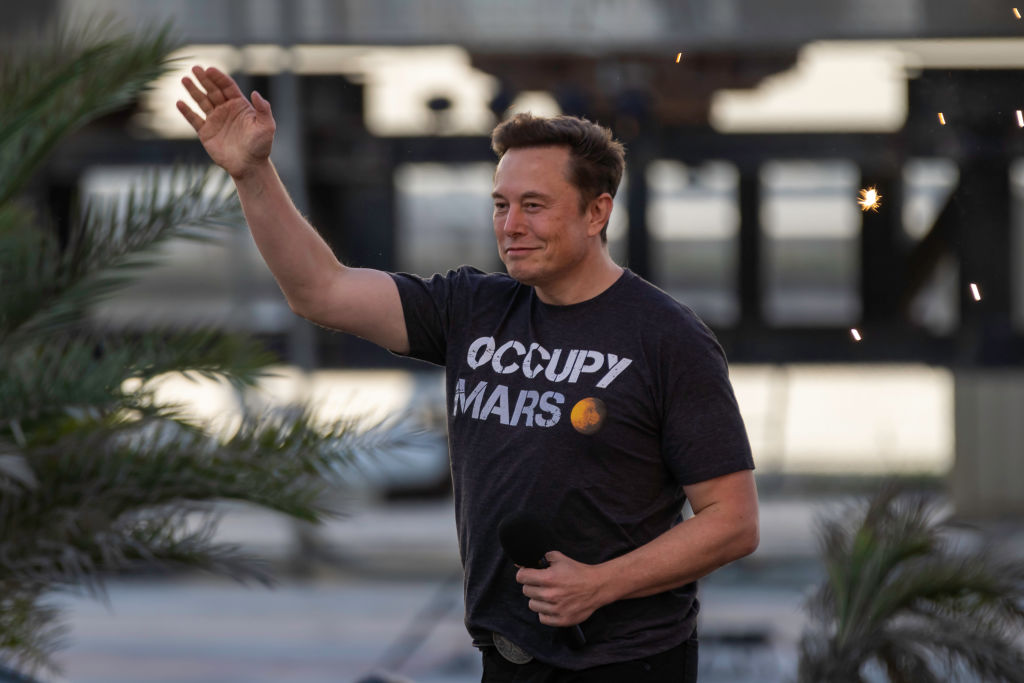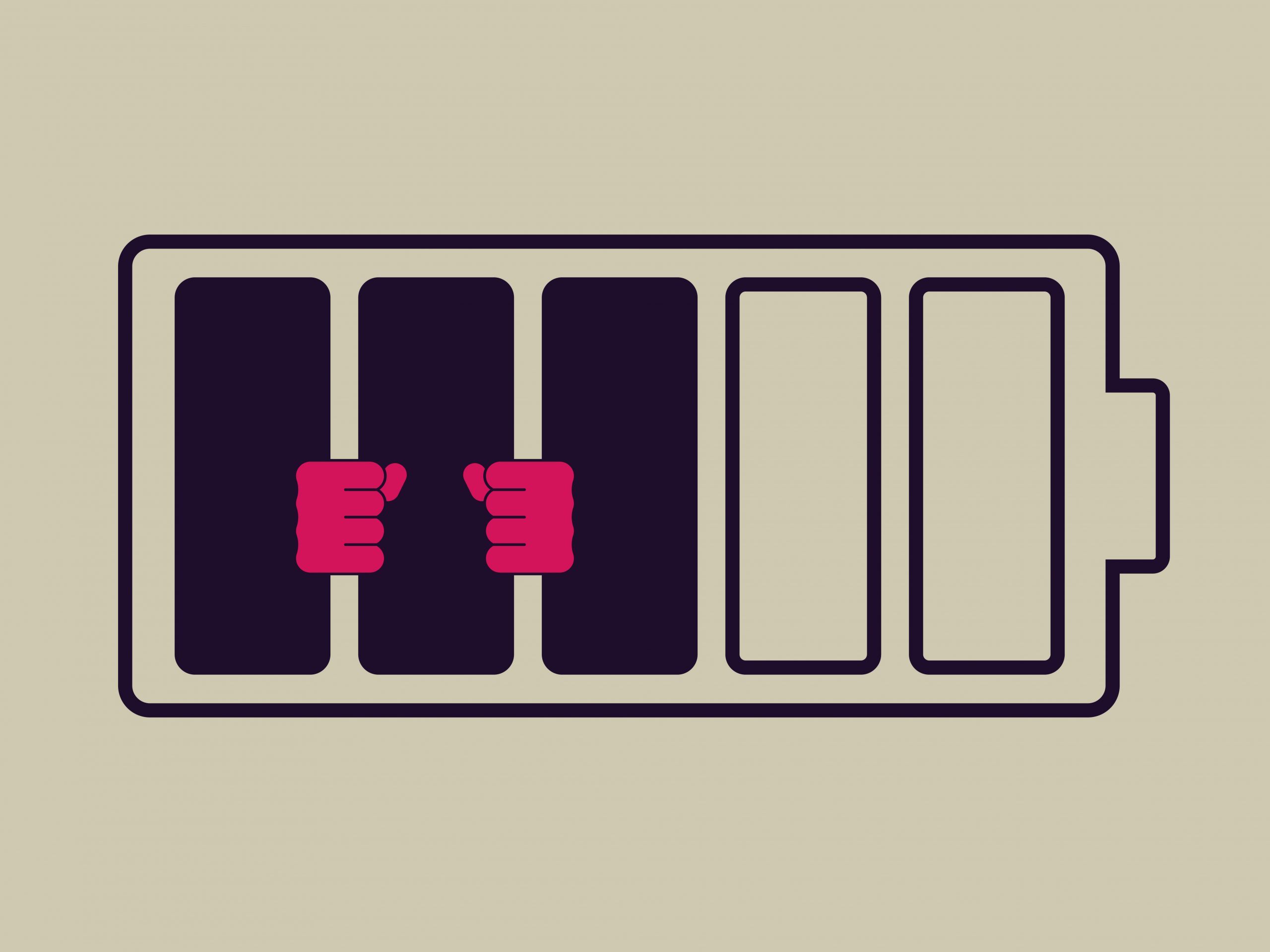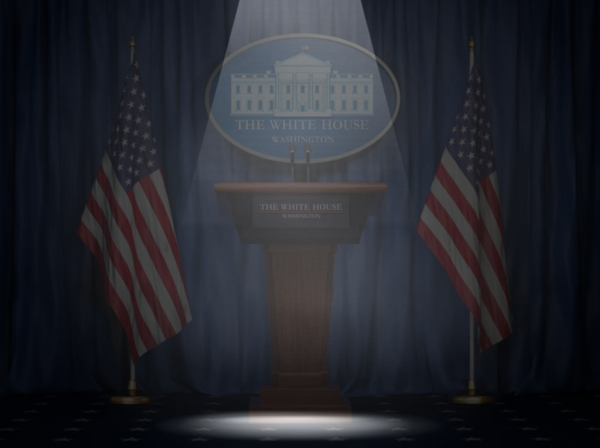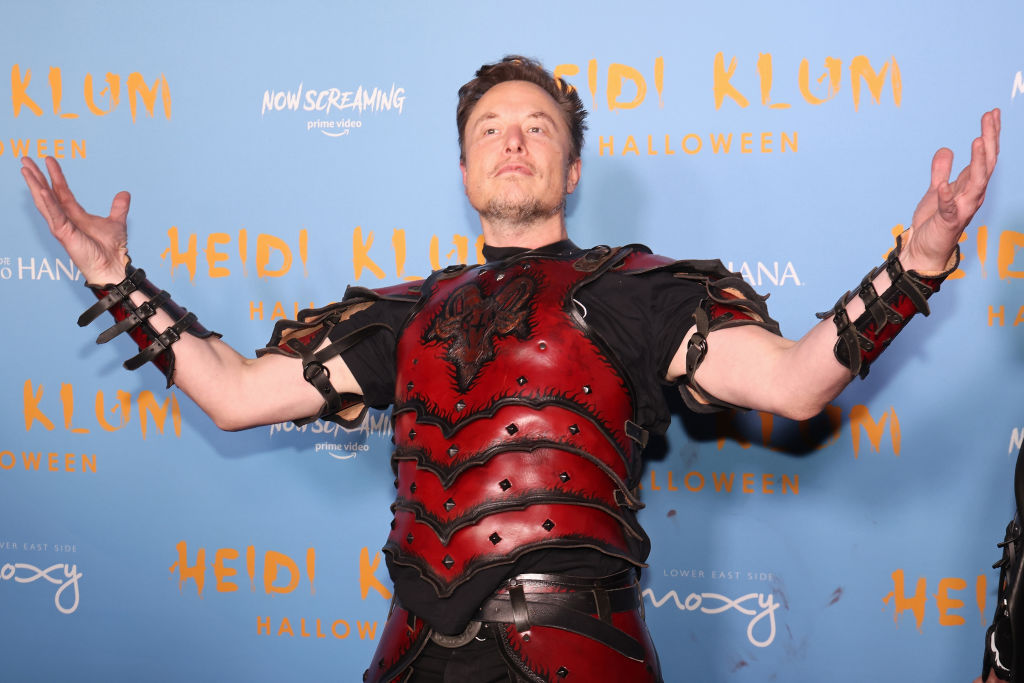Americans should resist technological subjugation by any means necessary.
King of Twitter

Elon Musk rules over his social media demesne as a kind of digital statesman.
Ever since Elon Musk bought Twitter, everything on the site has been colored by that fact. In his total control of its tone and operations, Musk treats Twitter more like a state to be governed than a company to be managed. Accepting this characterization means accepting that, as suggested by Matthew Peterson last June, Musk is engaged in a new kind of statesmanship.
But what sort of regime is Elon Musk creating?
A free speech regime?
Musk’s all-consuming presence on Twitter is not exactly new. Before acquiring the platform, he spent the last several years alternating between posting memes and drastically shifting various financial markets with a tweet or two. He often expressed his love for Twitter, and Twitter’s users expressed their love (or hate) in return. Eventually he felt the need to commit. “If I love Twitter so much,” he reasoned, “why don’t I marry it?” He reportedly became serious about buying Twitter earlier this year when The Babylon Bee was banned for posting satire.
The Babylon Bee incident deserves special notice. From the first moment he earnestly sought to buy Twitter, Musk has consistently expressed his desire to promote free speech, going so far as to call Twitter “the de facto public town square.” At times, he has hedged his conception of free speech, reverting to a strictly legalistic definition. Indeed, in practice he is far from an absolutist, suspending Kanye West’s account after he posted a symbol that Musk called an “incitement to violence,” and refusing (so far) to unban Alex Jones for personal reasons.
Supposing Musk is serious about his commitment to free speech—and he seems eager to insist that he is—we might ask, what would Twitter as a free speech haven look like? Musk could easily have purchased Twitter, unbanned all accounts, thrown the ban button in the trash, and run the company as an unregulated anarchic digital thunder dome. As emperor, he then might occasionally descend into the colosseum to offer a word of encouragement to the gladiators, but fundamentally he would operate as an unseen power for the users, and an active leader only for the company. Even if he had gone this route, Emperor Elon would still have refused to remove his armor and leave the arena.
In reality, Twitter thus far resembles less a thunder dome and more a chaotic marketplace through which the king—astonishingly—marches every day, inspecting the merchandise, joining the various activities (serious or playful), and, occasionally, swiftly, and somewhat arbitrarily punishing those whose presence he finds obnoxious. Happily for Twitter users, Musk seems to possess a higher threshold for “obnoxious” behavior than Twitter’s former rulers.
A man of the people
Musk spent his time before ascending Twitter’s throne mingling with the “common people,” of Twitter: cutting it up with crypto-bros, reply-guying The Babylon Bee, joining the meme wars, and generally becoming part of Twitter. As a result, the people of Twitter know Musk and see him as a positive presence, as he seems also to know and care about them. In these populist efforts, Musk resembles great statesmen in Shakespeare like Henry Bolingbroke or his son Prince Hal.
But such behavior often indicates ulterior motivations. In Richard II, Henry Bolingbroke leveraged his reputation among the English people to build support for his cause when he eventually usurped the throne. Musk too is using his relationship with the people as a foundation for his attempt at re-founding and governing a sustainable public free speech forum.
In service of this goal, Musk has begun a campaign of transparency, revealing the evils of the former heads of Twitter. He exposes the folly and manifest wickedness in Twitter’s old tyrannical government as a way to enact free speech in real time, but he also demonstrates to his people the justice and mercy of his own rule. He placates and shocks the populace as he publicly destroys their vicious former governors, reminding them of the great benefit bestowed upon them when he conquered their land.
Musk symbolically shows his commitment to hearing the people and governing Twitter according to their desires (if not literal consent) by regularly joining large Twitter Spaces, fully open to the public, in which he speaks directly with 100,000 Twitter users at once. Most high-profile people don’t do this, let alone the richest man in the world, the owner of Twitter.
These Twitter spaces yield substantial insights and promises (on which Musk follows through) that contribute directly to his governance. Furthermore, Musk is extremely active in the replies to his own tweets, as well as those of others. He does not reply to everyone but he publicly bestows approbation on select users, who are duly rewarded with likes and follows, as well as unmeasured internal metrics, owing fully to Musk’s magnanimity.
Demonstrating his populism, Musk regularly goes directly to the people in polls (like this and this), tackling questions that have come up repeatedly among Twitter users.
Controversially, he asked whether President Trump should remain banned from Twitter. Musk knew the answer to this question, based merely on his free speech principles. However, he did not act unilaterally. Instead, he made a symbolic appeal to the people. Once he had their sanction, he solemnized the results of the poll with his new motto: “vox populi, vox dei,” the voice of the people is the voice of God. With “God’s” approval, Donald Trump was reinstated.
Digital statesmanship
Trump’s reinstatement is fitting, if only as a gesture of gratitude. After all, Trump exposed the power of Twitter as a populist political medium. Many blame Trump’s Twitter presence for his erratic reputation, but Twitter was his direct line to the people, and the people responded consistently and enthusiastically, for better or worse. Elon Musk finds himself in debt to the former president; he’s using Trump’s playbook for a different regime.
Yet—Musk’s engagement with and action upon the will of the people proves more direct than President Trump’s. He possesses plenary authority over all aspects of his regime. “When [Elon Musk] says ‘Do this,’ it is performed,” (Julius Caesar 1.2.13). When a Twitter user speaks to Musk, they may as well be speaking to Twitter personified, for he represents Twitter to the people, and the people to Twitter.
What’s next?
Elon Musk is a digital statesman, self-consciously presenting himself as the legitimate leader of a digital social-state. He rhetorically signals his desire to embody the will of the people, and to instantiate the principles of free speech, carefully ensuring that he controls both of these ideas, and that they never control him. His principles are manifestly subordinate to his will.
Whatever Musk’s shortcomings, whatever difficulties we encounter pinning down his goals or principles, should he achieve a neutral(ish) platform, and nothing more, the world may well thank him. We know from history that no regime ever lasted forever. Musk’s regime (for now) looks like late republican Rome if it were led by a moderate prince. But all the dangers that led Twitter to its decayed state before Musk’s arrival still loom ominously over the platform. That said, as matters stand, we may conceivably witness a significant (if limited) digital renaissance in Elon Musk’s vast empire should he maintain control.
The American Mind presents a range of perspectives. Views are writers’ own and do not necessarily represent those of The Claremont Institute.
The American Mind is a publication of the Claremont Institute, a non-profit 501(c)(3) organization, dedicated to restoring the principles of the American Founding to their rightful, preeminent authority in our national life. Interested in supporting our work? Gifts to the Claremont Institute are tax-deductible.
Today’s miseducated fame-seekers can’t lead us, unless it’s off a cliff.
America's dark wizard to the rescue?



